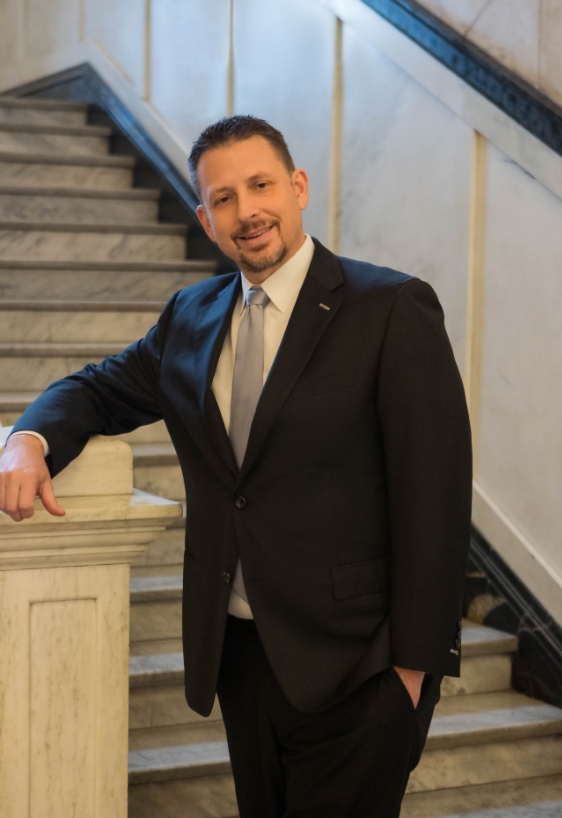In Illinois, Rideshare services, such as Uber and Lyft, have revolutionized how people travel and are a great help for those who cannot (or prefer not to) drive, take regular taxis or use public transport. In many US cities, rideshares now outnumber standard taxis. Understanding the implications of Rideshare Accidents and how they affect users is crucial for all Rideshare Accidents participants.

However, rideshares can also present legal complexities when car accidents occur, particularly in the context of Rideshare Accidents. The potential for multiple parties—the rideshare driver, passengers, other motorists, pedestrians, and the rideshare company itself—to be involved can complicate the issue of liability.
For those involved in Rideshare Accidents, knowing your rights and responsibilities can make a big difference.
Legal advice is essential after Rideshare Accidents to navigate potential claims and ensure adequate compensation.
Rideshare Accidents can involve disputes over compensation, making legal representation vital.
To understand more about who is responsible and the legal options available if you are injured in a rideshare accident, particularly regarding Rideshare Accidents in Illinois, let’s delve deeper.
What is ridesharing?
Rideshare services are provided by companies like Uber and Lyft, offering freelance drivers for hire through smartphone apps. Drivers use their personal vehicles to transport customers, with the number of rideshare services rapidly increasing in urban centers of Illinois in recent years.
Uber and Lyft taxis differ from standard taxis in several respects: with rideshares, apps are used to book services, no meter is used, and customers understand the cost of the journey before they book. Most of the time, the rideshare vehicle is privately owned by the driver rather than a taxi company, and rideshare companies are less regulated than standard taxi companies.
Types of rideshare accidents in Illinois
Like with all types of motor vehicles in Illinois, rideshares unfortunately experience their fair share of accidents on the roads. The three main types of rideshare accidents are:
- A passenger injured during a ride.
- A passenger injured due to an assault by a rideshare driver.
- A driver or passenger of another vehicle injured in an accident with a rideshare vehicle.
Accidents occur due to distracted driving, speeding, failure to follow the road rules, drunk driving, following too closely, poor road or weather conditions, vehicle defects, and other reasons.
Who is liable in rideshare accidents under Illinois law
Compensation claims related to Rideshare Accidents can be lengthy, requiring patience and persistence.
Victims of Rideshare Accidents often face challenges in proving liability during claims.
In many cases, understanding the dynamics of Rideshare Accidents can aid in resolving claims more efficiently.
Claims resulting from Rideshare Accidents may require extensive documentation to support your case.
Depending on the circumstances of the rideshare accident, several different parties may be held liable…
The rideshare driver
If the rideshare driver caused the accident due to any of the reasons detailed above, such as speeding, running a red light or distraction from using a smartphone app, their negligence may make them liable.
Drivers in Illinois are required to operate their vehicles with reasonable care. Failure to do so can result not only in liability in civil personal injury cases but also in criminal liability.
Complexities may result in personal injury cases when a victim claims from a rideshare driver’s insurance. If logged into the Uber or Lyft app, the company’s commercial insurance policy may provide coverage. If not, the driver’s personal insurance applies. Either way, liability can be disputed, and it can be challenging for victims to get the compensation they deserve without legal assistance.
After Rideshare Accidents, it is critical to take proactive steps to document and support your claim.
A third-party driver
If the accident was the fault of another driver while you are a passenger in an Uber/Lyft rideshare, you would normally file a claim against the third-party driver’s liability insurance.
Victims should always be aware of their rights after Rideshare Accidents and the importance of timely action.
If the driver is uninsured or underinsured, it may be possible to claim the balance of the damages against Uber and Lyft’s uninsured/underinsured motorist coverage. Again, this can be difficult without the right legal support.
Rideshare Accidents necessitate a thorough investigation to ensure all liable parties are held accountable.
The rideshare company
The fact that most Uber and Lyft drivers are classified as independent contractors can often be used to deflect liability away from the company itself. Direct claims against Uber or Lyft are permitted in Illinois if the victim can show evidence of the following types of negligence:
Legal disputes arising from Rideshare Accidents often hinge on detailed accounts of the incident.
- Hiring, e.g., hiring a driver with a history of distracted driving.
- Supervision, e.g., failure to act on multiple reports of distracted driving by a driver.
- Policy enforcement, e.g., failure to act on a clear policy of suspending or dismissing drivers with repeated distracted-driving reports.
Other parties
In some rideshare accident claims, another party can be held liable in Illinois, including:
- Vehicle manufacturers, e.g., with a defective brake or steering system.
- Local governments or municipalities, e.g., for poor road conditions, absent signage or malfunctioning traffic signals.
- Vehicle maintenance companies: victims can claim against negligent maintenance if the rideshare driver leased their vehicle or relied on a third-party maintenance service.
Rideshare arbitration agreements in Illinois
Many rideshare users are unaware that by agreeing to download and use Uber or Lyft apps, they are consenting to a service agreement that stipulates that disputes are resolved by private arbitration, which may affect their right to sue after an accident.
Seeking legal counsel after Rideshare Accidents may help victims receive fair compensation for their injuries.
An arbitration agreement means limited discovery, no jury, and binding outcomes decided by an arbitrator rather than a judge, outside of the court process.
Arbitration may be quicker and incur lighter legal costs than litigation but it may favor the corporation rather than the claimant, as consumer rights may be restricted. This can potentially complicate the legal rights of claimants and restrict the litigation process, especially if the court upholds the validity of the rideshare company’s arbitration agreement during a legal challenge.
Often, an experienced rideshare lawyer can help navigate such difficulties and help you assert your legal rights.
Being informed about your rights after Rideshare Accidents can empower you during the claims process.
What should I do after a rideshare accident in Illinois?
By following this series of steps, passengers, drivers, pedestrians and other parties can better navigate the process of recovering from a rideshare accident in Illinois, while also claiming their rightful damages:
- Report the accident: Any vehicle accident in Illinois that involves injury or property damage over $1,500 must be reported to the police. You should also report the accident through the Uber or Lyft app.
- Gather evidence: At the scene of the accident, get contact and insurance information from the parties involved, take video/pictures, and collect witness details if you are not badly injured, and it is safe to do so.
- Seek medical attention: Get a comprehensive medical checkup, even if you are unsure if you are hurt, as this may uncover hidden injuries and will create medical records.
- Contact a rideshare accident attorney: Navigating the complex claims process and dealing with insurance companies is much easier with the help of a seasoned rideshare accident lawyer.
Navigating insurance after a rideshare accident in Illinois
Many individuals underestimate the impact of Rideshare Accidents on their long-term health and finances.
In complex accidents, multiple insurance claims may be required, policies may overlap, liability may be contested, and insurance companies may intentionally create obstacles and delays.
Understanding the modified comparative negligence rule and Illinois personal accident law in detail is essential for recovering full and compensation for your losses.
Rideshare claims are easier with a Bloomington personal injury lawyer
With so many obstacles and potential complexities, the assistance of an experienced rideshare lawyer can be invaluable when claiming. Your lawyer will:
- Thoroughly investigate the accident.
- Ensure that claims are made against all liable parties with the relevant insurance companies.
- Negotiate with the insurance company or companies for a favorable settlement.
- File a lawsuit, if necessary, against the liable party or parties.
- Represent you in court, if necessary.
Rideshare Accidents often lead to intricate legal battles, emphasizing the need for professional guidance.
It can be highly challenging to handle all this alone, especially if you are still recovering from injuries.
With the complexities involved in Rideshare Accidents, assistance from qualified attorneys can be vital.
Dodds Law Office, PC has represented many victims in rideshare accident cases in Illinois. We have the necessary knowledge, experience, and resources to secure a favorable outcome from your compensation claim.
Engaging with a firm experienced in Rideshare Accidents can enhance your chances of a successful outcome. Contact us for a free case evaluation.

